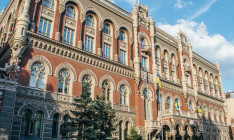Economy
administrative reformThe Cabinet is initiating reduction of government agencies. The authorities of the remaining ones will be re-distributed

The Cabinet of Ministers has developed a plan for the downsizing the controlling bodies of the executive power. As Capital learned, at yesterday’s meeting led by Vice Premier and Minister of Regional Development, Construction and Housing Utilities Complex Volodymyr Groysman, a decision was made to set up a working group under the Cabinet of Ministers. It will be involved in drafting the required changes to the current legislation.
A source in the Cabinet told Capital that the first meeting of the group is planned for Monday. “The primary task is to develop new functions and structures of the controlling bodies. The first results should be delivered next week,” specified advisor of Groysman Yuriy Butsa. Only after that will it be possible to calculate how much money can be saved for the budget and by how much the number of the controllers will be reduced, he said.
Who goes where?
The government has already developed a preliminary plan of action for reforming the controlling bodies (the publication has a copy). Under the plan, the State Price Control Inspection will be liquidated. Monitoring of prices shall be performed through the State Statistics Service or the State Inspection for the Protection of Consumer Rights. It is proposed that the Agrarian Fund be subordinated to the Ministry of Economic Development with the aim of “market regulation of prices for necessity goods”. The plan also envisages creation of the Financial Investigation Service, which will assume certain functions of the Ministry of Internal Affairs and the State Security Service (SBU) in the sphere of fighting economic crimes.
The changes will also apply to social security agencies. Under the plan, a Common Social Security Fund will be created on the basis of the Pension Fund through the merger of the four existing funds, i.e. Fund for the Social Protection of the Disabled, Fund for the Protection Against Accidents, the Social Security Fund for Temporary Disability and the Social Security Fund for Unemployment. In addition to that, by merger of the State Mining Supervision and Industrial Security Service of Ukraine and Labor Inspection under the Ministry of Social Policy, a Common Labor Inspection may be created, which will overtake the functions of guaranteeing the labor hygiene of the Sanitary Epidemic Service and the functions of labor safety of the State Agriculture Inspection Bureau of Ukraine. It is proposed that the latter be liquidated altogether and its functions be divided between the Agrarian Policy Ministry and the State Agency of Land Resources of Ukraine and other bodies.
The reform plan also envisages the liquidation of the National Financial Market Regulatory Commission with a transfer of its functions of oversight over insurers, lending institutions, leasing companies and financial institutions to the National Bank of Ukraine. The authorities for the oversight of non-government pension funds and pawn shops will be transferred to the National Securities and Exchange Commission. At that, a Common Inspection Bureau is proposed to be created under the Energy and Coal Industry Ministry through the unification of the State Inspection Bureau for the Use of Power Stations and Networks and the State Inspection Bureau for Energy Oversight of Regimes of Consumption of Energy and Thermal Energy.
The reform will also affect government agencies in the sphere of transport. A Common Inspection Bureau for Security on Transport may be created under the Ministry of Infrastructure, which may be entrusted the functions of the State Aviation Service, the Ukrainian Transport Inspection Bureau and the Ukrainian Sea and River Inspection Bureau and also controlling authorities of UkrAvtoDor, the Ministry of Infrastructure and the National Fishing Agency.
As Head of the Secretariat of the Council of Entrepreneurs under the Cabinet of Ministers Andriy Zablovskiy specified, in the process of liquidation of controlling bodies some of the powers may be transferred to the self-regulating organizations in compliance with European practice. “The process will be painful and the ministries and agencies that will be subject to changes will resist,” he noted. The expert says the pace of the reform will depend on the format and composite in which the government will continue its work.
Reasons for downsizing
The purpose of these changes, as the Cabinet argues, is to reduce the pressure on business and reduce to a minimum the authorities in the bodies of executive power and reduce expenditures of the national budget on the maintenance of the controlling bodies. This coincides with the statements of Arseniy Yatsenyuk on the reduction of expenditures for controlling bodies and inspections in the country by 70%.
According to the Employers’ Federation of Ukraine (EFU), there are 70 controlling agencies in the country. Of them 9 can inspect any company and 44 have the power to suspend the operation of a business. Last year, controlling bodies performed 1,487,291 planned and extraordinary inspections. According to the EFU, expenditures of the national budget and other sources on maintenance of the controlling bodies amount to UAH 24.7 bn a year, while the expenditures of the government per one inspection are UAH 16,000.
First Deputy Chair of the VR Budget Committee Oksana Kaletnyk says the repercussions of reforms in Georgia, which at one time focused on the reduction of functions of controlling agencies, can be seen in the plans of the government. “We have way too many controlling bodies and their number must be reduced,” says Kaletnyk. “The other thing is that such changes must not be made in haste, because the house of cards of the executive power may fall to pieces.”












 of the agreement of syndication with Financial Times Limited are strictly prohibited. Use of materials which refers to France-Presse, Reuters, Interfax-Ukraine, Ukrainian News, UNIAN agencies is strictly prohibited. Materials marked
of the agreement of syndication with Financial Times Limited are strictly prohibited. Use of materials which refers to France-Presse, Reuters, Interfax-Ukraine, Ukrainian News, UNIAN agencies is strictly prohibited. Materials marked  are published as advertisements.
are published as advertisements.